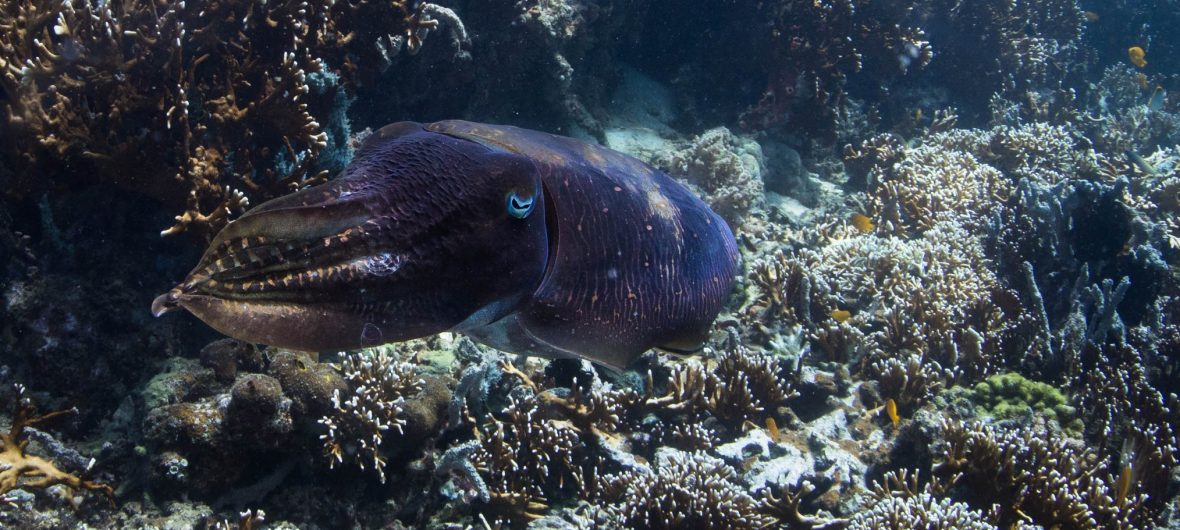Our Conservation Research Assistants (CRAs) have the unique opportunity to train alongside our Marine Science and Conservation Staff in the attainment and processing of data collected across all of our projects. Additionally, we provide extensive opportunities to gain hands-on field experience in a broad range of marine conservation techniques, across multiple marine ecosystems. Conservation Research Assistants will not only learn practical, theoretical, problem-solving, and analytical skills that will enhance their prospects as future conservationists but will learn how to communicate science to local stakeholders through school education and community outreach programs. Ideal for students in the early stages of their marine biology or conservation careers this program will help you to build practical research and conservation experience embedded in a strong foundation of biological and oceanic knowledge.
All of the activities you will take part in are based on our research, conservation, and education initiatives and are designed to provide you with the knowledge and skills to progress as a marine biologist. Receive training from experienced marine biologists who will provide bespoke guidance and advice based on your career aspirations to ensure that you get as much benefit from your expedition as possible.
▼ Skills Acquired
The skills you acquire during your Conservation Research Assistantship will depend to an extent on the duration of your stay and where your particular interests lie. However, to give a general indication of the project areas that are covered during our Conservation Research Assistant Expedition please see the list below:
- Intimate knowledge of coral reef ecosystems and processes
- Intimate knowledge of Indo-Pacific coral, fish, substrate, invertebrate, and megafauna species Identification
- In-depth understanding of coral reef threats, impacts, and conservation
- Hands-on experience in coral restoration processes and techniques; coral reef survey and monitoring techniques; and reef impact protocols (coral bleaching, coral disease, fishing or boat damage, pollution, drupella spp., and crown of thorns starfish outbreaks)
- Underwater field experience with 3-dimensional reef modeling, diver-operated Stereo Video Systems (DOVs), and Baited Remote Underwater Video Systems (BRUVs)
- Detailed knowledge of shark and ray biology and behaviours
- Detailed knowledge of turtle biology and behaviours
- Field experience in turtle Identification methodologies, turtle population analysis, and turtle conservation
- Intimate knowledge of mangrove ecosystems and processes
- Thorough understanding of mangrove threats, impacts, and conservation
- Hands-on experience in mangrove restoration processes and techniques and mangrove survey and monitoring methodologies
- Intimate knowledge of seagrass ecosystems and processes
- Thorough understanding of seagrass threats, impacts, and conservation
- Active experience in seagrass restoration techniques and seagrass survey and monitoring methodologies
- In-depth knowledge of habitat fragmentation and the importance of restoring connectivity
- Experience with historic ecological assessment and habitat reconstruction protocols
- Comprehensive understanding of recycling and waste management techniques
- Detailed understanding of Microplastic analysis and chemical sampling techniques
- Detailed appreciation of NGO and field site operations
- Extensive experience scuba diving in a variety of conditions and whilst conducting a range of activities
- Capability development in buoyancy control and eco-aware diving
- Experience working with Marine Scientists in a professional environment
- The ability to communicate science through community outreach and cultural exchange activities
▼ Prerequisites
- You must hold or be in the process of obtaining an undergraduate degree in a relevant subject (Biology, Marine Biology, Oceanography, Conservation, Ecology, Zoology, or related)
- You must be a minimum of 18 years of age
- You must hold a PADI Open Water Dive Certificate or equivalent OR book to complete your PADI Open Water with us when you arrive on site.
- Medically evaluated and cleared for diving by a physician within 12 months
- Minimum 2-week commitment (booked in weekly increments up to a maximum of 25 weeks)
- Available to begin Conservation Research Assistant Expedition on a Monday
▼ Tuition Fees
- 2 weeks – £1250 (approx. Rp. 26,250,000)
- 3 weeks – £1675 (approx. Rp. 35,175,000)
- 4 weeks – £2100 (approx. Rp. 44,100,000)
- 5 weeks – £2425 (approx. Rp. 50,925,000)
- 6 weeks – £2750 (approx. Rp. 57,750,000)
- 7 weeks – £3025 (approx. Rp. 63,525,000)
- 8 weeks – £3300 (approx. Rp. 69,300,000)
- 9 weeks – £3550 (approx. Rp. 74,550,000)
- 10 weeks – £3800 (approx. Rp. 79,800,000)
- 11 weeks – £4050 (approx. Rp. 85,050,000)
- 12 weeks – £4300 (approx. Rp. 90,300,000)
Each additional week after the 12th week is charged at £225 (approx. Rp. 4,725,000)
If you require training for your PADI Open Water Certificate at the start of your Expedition, please see PADI Courses for details and pricing.
▼ What’s Included
We offer our Conservation Research Assistantship as a package program and have worked hard to include as much as we can so that you really get the most out of your time with us. Please note that the duration of your stay will impact which and how many of our lectures and workshops you are able to experience, as well as how many of our projects you can participate in.
- Field training in all of our projects, techniques, and methodologies
- Introductory Marine Biology and Conservation lecture and workshop series’ (Coral Reef Biology and Conservation, Indo-Pacific Identification – Fish, Substrate, Coral, Invertebrate and Megafauna, Coral Restoration Techniques, Coral Reef Impact Assessment and Survey Methodologies, Mangrove Biology and Restoration, Seagrass Biology and Restoration, Turtle Identification, Population Analysis and Conservation, Recycling and Waste Control, Buoyancy Control and Eco-Aware Diving, Community Outreach and Cultural Exchange)
- Advanced Marine Biology and Conservation lecture and workshop Series’ (Coral Reef Ecology and Physiology, Mangrove Ecology and Physiology, Seagrass Ecology and Physiology, Habitat Fragmentation and Rehabilitation, Community Reconstruction Assessment, Microplastic Analysis Techniques and Applications, Chemical Sampling and Assessment)
- Underwater field training in 3-dimensional reef modeling, diver-operated Stereo Video Systems (DOVs), and Baited Remote Underwater Video Systems (BRUVs)
- Data analysis of images using the most up-to-date software systems (CPCe, EventMeasure, and AgiSoft)
- Training in GIS mapping techniques and applications for aerial monitoring and assessment of ecosystems
- All necessary field equipment
- Career guidance and job placement training
- SCUBA equipment rental (Tanks, BCD, Regulator, weight belt, and weights – you will need to provide your own mask, fins, snorkel, and wetsuit. Dive computers must also be worn and can be rented separately on a week-by-week basis from SORCE)
- Unlimited training and survey dives – typically 2-3 dives per day 5 days a week (weather and tides permitting)
- Sunday Funday – including additional fun dive and end-of-week party with a special dinner
- Breakfast, lunch, and dinner, seven days a week
- Unlimited drinking water and hot drinks (tea and coffee)
- Complementary private accommodation in traditional bamboo lodges (double rooms and dormitory-style rooms can be accommodated on request)
- Complementary use of the outdoor gym, basketball court, and yoga equipment
- 24hr in-country support
- Visa and travel advice
Not Included:
- Marine Park Entrance Fee (payable on site) – Rp. 200,000 – Rp. 800,000 depending on duration
- Flights and transfers
- Visa costs
- Travel and Diving Insurance
- Additional drinks, food, and excursions
- Dive computer rental (available to rent on-site)
- Fins, Mask, and Wetsuit/Rashsuit
- Internet (sim cards and data can be purchased locally)
If you are interested in booking onto our Conservation Research Assistant program please download and fill in the Booking Form and return it to enquiries@sorce.org or contact us to ask about availability.
Click below to discover other ways to get involved

